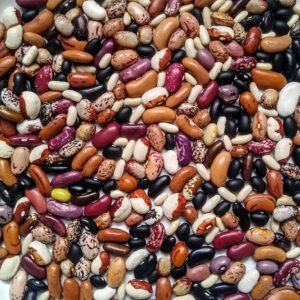
 Senator Jon Tester will soon introduce a Farm Bill amendment that aims to improve seed and breed choices for American farmers, strengthen U.S. agriculture, and bolster food security.
Senator Jon Tester will soon introduce a Farm Bill amendment that aims to improve seed and breed choices for American farmers, strengthen U.S. agriculture, and bolster food security.
Call your senators today and ask them to support Senator Tester’s Farm Bill amendment to enhance farmer access to improved seeds and breeds.
Find your senators here or call the Senate switchboard and they’ll connect you: (202) 224-3121. The message is this:
“As the Senate debates the 2012 Farm Bill, I urge you to support an amendment sponsored by Senator Tester to designate a small percentage of the USDA’s Agriculture and Food Research Initiative budget for classical plant and animal breeding. This amendment seeks to reinvigorate classical plant breeding in the public sector to better ensure farmers have the seeds and breeds they need to be successful.”
Classical breeding is cost-effective, proven, and the best source of the diverse, complex traits that allow farmers and researchers to respond to changing conditions, new challenges, and new market opportunities.
This could be our best chance to protect research funding for public, classical breeding. It’s not controversial, it has obvious benefits for researchers and consumers, and it’s good for every American farmer, no matter what kind of crop they choose to grow.
Your call will help ensure that public research dollars deliver diverse seed and breed choices to American farmers.
More talking points and background after the jump.
Classical breeding is a proven science to meeting our food and fiber needs
Classical (or “conventional”) plant breeding is our most successful approach to crop improvement, accounting for about half of our dramatic food and fiber crop yield increases throughout the 20th and early 21st centuries.
Classical breeding is highly cost-effective and complements newer forms of breeding and fills important roles that lab-based approaches, such as genomics, are not well suited to.
In recent decades, public resources for classical plant and animal breeding have dwindled, while resources have shifted toward lab-based and molecular breeding, with a narrow focus on a limited set of major crops and breeds.
U.S. farmers face diminished seed choices to meet specific farming needs
The shift in funding priorities has curtailed the diversity of regionally appropriate seed and breed choices for farmers.
Farmers in many regions of the U.S. are relying on seeds that are designed for other regions, or no longer meet the changing conditions and pest and disease pressures of their regions.
Farmers will be at a competitive disadvantage in the national marketplace without renewed funding for seeds and breeds adapted to regional farming needs.
Classical breeding projects improve food security for our growing population
Beyond farmer choice, the lack of seed availability and the narrowing of genetic resources makes our food system less secure.
The maintenance and improvement of genetic diversity through classical breeding is essential for the success of productive food systems and the greater global food supply, both now and into the future. This is a national issue and should be addressed, at least in part, through national programs such as the Agriculture and Food Research Initiative (AFRI).
MORE BACKGROUND
Farmer access to seeds and breeds adapted to their regions and specific farming and market needs is paramount to fostering the competitiveness of agriculture across the U.S. Farmers need access to seeds that are bred specifically for their regions and cropping systems, allowing them to grow crops well suited to their regional soil, climate, and pest conditions.
To address this problem, the 2008 Farm Bill required USDA to make conventional plant and animal breeding a priority for funding within AFRI. But in the AFRI grant-making process, USDA has imposed hurdles that have prevented the agency from meeting this Congressional mandate.
Senator Tester’s amendment corrects problems in USDA’s AFRI breeding grants that have become apparent since the last Farm Bill by requiring that 5% of annual funding for AFRI program prioritize public cultivar and breed development through classical breeding. It also removes hurdles that hinder USDA’s progress toward this goal.
COST: The Congressional Budget Office has ruled that the Tester Amendment has zero net cost to taxpayers.
